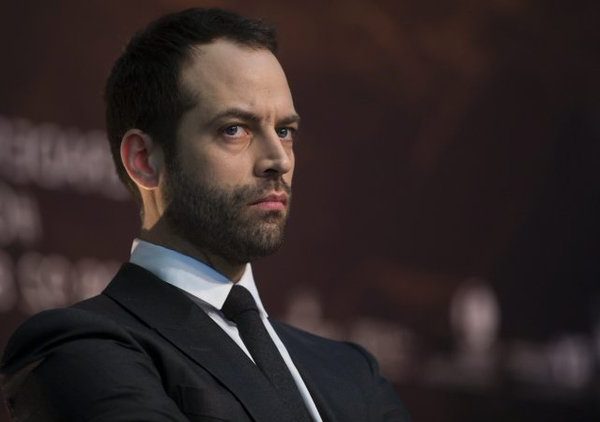RESET | Talking with Benjamin Millepied
To most people Benjamin Millepied is both the choreographer for Darren Aronofsky’s Oscar-nominated film “Black Swan” and the husband of Oscar-winner Natalie Portman, for the same film. In the world of ballet, however, Benjamin Millepied has been a trailblazer for young dancers as the Director of the Paris Opera Ballet during a span of two years starting in 2014.
Millepied was at the Tribeca Festival premiere of the documentary “Reset” which retraces his time spent at the Paris Opera Ballet. Screen Comment met with him to go back to this quintessential moment in his life where, as instigator of change, he attempted to inject a modernist streak in what remains a rigid and hierarchical institution.
The name of your thirty three-minute ballet premiere is Clear Loud Bright Forward. Would you say those words defined your whole philosophy coming into the role of Director of the Paris Opera Ballet, in the footsteps of Brigitte Lefèvre, in November of 2014?
The title of the ballet was more in regards to the work we wanted to make. Nico is always the one who chooses the titles actually but, yes, there was this energy and clarity that came with bringing that group of dancers forward. I took a very young group of dancers in the company, none of which were principals, and made them the main focus.
Would you consider your collaboration with United Visual Artists for the scenography for example, as part of your intent to re-invent, in a way, the Paris Opera Ballet, that collaborating with non-French artists was a means of pushing boundaries?
United Visual Artists was an interesting choice and a great collaborator of our time. The idea of making a major dance company more diverse is definitely something that is interesting to think about in 2016. To make a point of it with “Reset” was important. To say: Listen, this company of 154 dancers isn’t representative enough of this society that Paris is suppose to have today. It’s important to let everyone have a fair chance and to think about changing the audience and by who they see dancing on stage. There is no limit to who you can collaborate with. You have to be open-minded and open to the world.
Your former classmate and close friend Dimitri Chamblas depicts you as someone who, when other dancers were scared and anxious, you were always having a blast. Is that a fair assessment of who you are?
Yeah, definitely! I think I had a good time throughout my career and the time that I studied. Yes, definitely. I always treated my passion for dance with joy and pleasure. There was no reason for it to be a really tough experience.
You said at one point: “Si nous, avec l’art, on peut pas être un exemple pour la société alors ou va-t-on?” (“If, with art, we cannot be an example for society then what’s the point?) In what way have you tried to set an example for society through dance?
I think I said that mostly in reference to the ballet Clear Loud Bright Forward and the dancers on stage. The Paris Opera Ballet is the jewel of performance art in France. France is a country today that is very open and very diverse, there is no reason for this theater to somehow remain elitist.
I’ve learned from the film’s director Thierry Demaiziere and the cinematographer Alban Teurlai that you approached them for the making of this documentary. Did you want to make this documentary to capture the way you’ve set out to make this institution [the beginnings of the Paris Opéra can be traced back to the reign of Louis the XIV] more in sync with our time?
I wanted to make this documentary because it was the first ballet I did as Director of the Paris Opera Ballet. It was a very important moment and a turning point in my life. It marked the beginning: what happened, where I was, where I started and what I did. I’m glad I did because it’s a testimony of what I was trying to do there.
There has been some criticism regarding your view of the Paris Opera Ballet as limited by its rigidity and sense of hierarchy which doesn’t allow it to grow and progress and how you’ve attempted to change that. Do you think that even though you have since resigned your post as Director you were able to instill change during your time there and get people to open their mind to that?
Absolutely, Absolutely! I think there’s a lot that the company can now build on. There is so much for the younger generation of dancers to remember. Older dancers who have to leave are probably having heart attacks when they think of change but not the younger generation. They can make a difference.
The enthusiasm and freedom one can find in dance is something which Dimitri says you should never forsake. He believes that if you had to lose that part of yourself you would, without a doubt, walk away. Is the reason you resigned from your post as Director because you had to for the sake of your self, of your art?
I felt like I was making compromises and that I didn’t have the tools to build the institution that I wanted and was hoping to build. It wasn’t a question of time either. My dreams were elsewhere. The structure has to be organized in a way that you can build and I want to build something and I felt like I couldn’t build my dream there.
Due to time constraints and the volume of film reviews this year this interview could not be published while the Tribeca Festival was still ongoing.
READ MORE: find all our stories out of this year’s Tribeca Festival here










